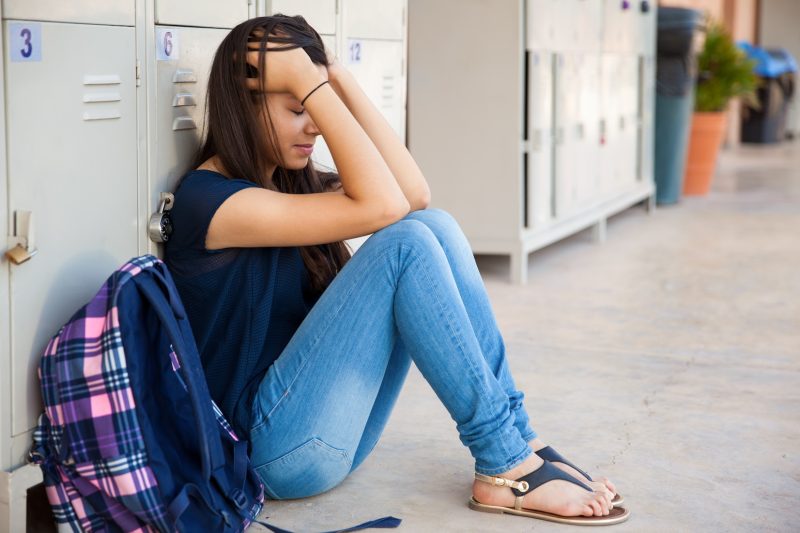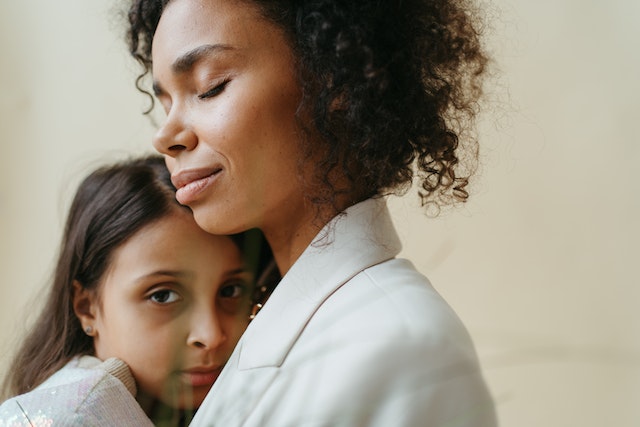
In our work with teenagers, we’ve learned that teens respond better to adults who choose to be companions on the grief journey rather than direct it. We have also discovered that adult companions need to be aware of their own Read more >>
Request an Appointment
English: 650.688.3625
Medi-Cal: 650.688.3650

In our work with teenagers, we’ve learned that teens respond better to adults who choose to be companions on the grief journey rather than direct it. We have also discovered that adult companions need to be aware of their own Read more >>

Resources for Talking to Young People About Mental Health and Suicide
As a parent or caregiver, you play a pivotal role in your teen’s life—not just in providing care and support but also in guiding them through difficult conversations and emotional challenges. Talking about suicide openly and compassionately can help break Read more >>

Many young people growing up in American cities and neighborhoods shaped by violence experience persistent traumatic stress which impacts their learning, development, and mental health, through no fault of their own. The scope and complexity of the problem means there Read more >>

Resources for Talking to Children About War and Global Conflict
The resources on this page provide parents, educators and other caring adults with age-appropriate tips and guidance on helping children process and cope with their feelings about humanitarian crises. Read more >>

8 Tips for Talking to Your Children About Conflict and War
When conflict or war makes the headlines, it can cause feelings such as fear, sadness, anger and anxiety wherever you live. Here are some tips on how to approach the conversation with your child and to provide them with support Read more >>

How to Talk With Kids About the War in Gaza and Israel
Parents and families across the world have been distressed by the war in Gaza and Israel. Those who are there (or who are connected to the people of the region) may grieve for loved ones who have been killed or Read more >>

Talking to Children about War [downloadable]
International wars and conflict enhance our sense of danger and may cause worry about what will happen in the days and weeks ahead. A range of emotions (e.g., outrage, fear, anxiety and sorrow) are common and can change as the Read more >>

Burnout, Compassion Fatigue, and Vicarious Trauma [downloadable]
In the simplest terms: burnout occurs when the stress we experience exceeds our capacity to cope with that stress. Some individuals may be able to thrive – at least in the short term – under high stress. However, chronic stress Read more >>

Nine Tips for Talking With Kids About Trauma
As much as we might want to, we can’t always protect children from witnessing violence and tragedy in the world, whether it’s mass shootings, terrorist attacks, or war. As parents, teachers, and other supportive adults, what we can do is Read more >>

Handle With Care: Supporting Young People During Crises
The entire community is responsible for protecting and supporting children, especially in times of crisis. In empathizing with families, educators and community members who must respond to the needs of children as a traumatizing event unfolds, Learning for Justice gathered Read more >>
English: 650.326.5530 | Español: 650.688.3650 | Fax: 650.688.3669
English: 650.326.5530
Español: 650.688.3650
Fax: 650.688.3669
English: 650.668.3625 | Español: 650.688.3650 | careteam@chconline.org
English: 650.668.3625
Español: 650.688.3650
careteam@chconline.org
© 2024 Children’s Health Council. All rights reserved.
CHC Palo Alto: 650 Clark Way, Palo Alto, CA 94304 | 650.326.5530
CHC South Bay: 2280 Kenwood Avenue, San Jose, CA 95128 | 408.831.7512
CHC Ravenswood: 1765 E Bayshore Rd, East Palo Alto, CA 94303 | 650.702.2487
CHC Palo Alto:
650 Clark Way, Palo Alto, CA 94304
650.326.5530
CHC South Bay:
2280 Kenwood Avenue, San Jose, CA 95128
408.831.7512
CHC Ravenswood:
1765 E Bayshore Rd, East Palo Alto, CA 94303
650.702.2487